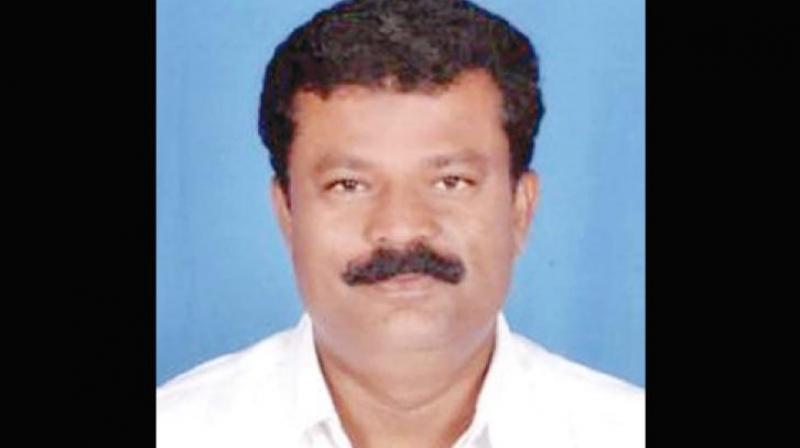Madras high court dismisses ex-TN min's plea to suspend conviction
The Madras high court dismissed his petitions which sought to suspend his conviction and sentence.

Chennai: In a major setback to former TN minister Balakrishna Reddy, convicted and sentenced to under go 3 years RI in a 20-year-old riot case, the Madras high court dismissed his petitions which sought to suspend his conviction and sentence.
“This court is of the considered view that the charges against the appellant/accused are too serious for which he was convicted and it would not be in the fitness of things to suspend the sentence for the present and much less suspending the conviction to enable the appellant/accused to retain his membership notwithstanding his deviant conduct, culminating in the conviction by the court of law”, said Justice V.Parthiban while dismissing two criminal miscellaneous petitions from Balakrishna Reddy.
The judge directed the registry to post the present criminal appeal against an order of the special court for cases related to elected Members of Parliament and Members of Legislative Assembly of Tamil Nadu, in the first week of February.
The effect of the present order refusing to suspend both sentence and conviction is Balakrishna Reddy has to approach the Supreme Court against this order.
In his order, the judge said from the materials and the pleadings placed on record, it could be seen that the participation of the appellant/accused in the unlawful assembly, was not denied. Although the prosecution examined 28 witnesses, no evidence was let in on behalf of the defence in order to deny the participation of the appellant/accused. His further participation in the criminal offences attracting the provisions for which he was charged with would have to be seen from the oral evidence.
In this case, there were large number of accused persons involved in rioting and it might be possible to have too many witnesses to identify so many accused for their active involvement or otherwise. In this case, admittedly, each one of the witnesses examined on the prosecution side, has identified the persons’ involvement in rioting etc and also for causing extensive damage to the public and private property, the judge added.
The judge said the prosecution witness-11 (head constable)’s evidence was very clear on that aspect where he identified the involvement of the appellant/ accused in commission of the offences.
The trial court on the basis of the cogent evidence given by PW-11 and also on the basis of several other witnesses on the prosecution side, has convicted all the accused including the appellant herein. Merely because there was only one witness who deposed against the appellant and therefore, such evidence need not be given any credence, was not an acceptable submission for the simple reason that the evidence given by him was clear and cogent and that was prima facie enough for coming to the conclusion against the appellant. It cannot be gainsaid that there was no evidence at all, as made out by the senior counsel for the appellant as there exist prima facie evidence through prosecution witness-11 to unequivocally implicate the appellant for the offences charged against him, the judge added.
The judge said the charges against the appellant were quite serious in nature, particularly, with reference to his position in the society today. He was part of the unlawful assembly which let loose violence on the police who were sent to the scene of occurrence to maintain law and order. Further, the mob had given vent to their anger by burning five buses belonging to the state and also set fire to the police jeep and further caused damage to the private vehicle.
Such incident would have definitely undermined the public order and peace in the locality. Whatever be the reasons for their assembly, it was not open to the appellant or any other members of unlawful assembly to exhibit intolerance and unruly conduct, the judge added.

